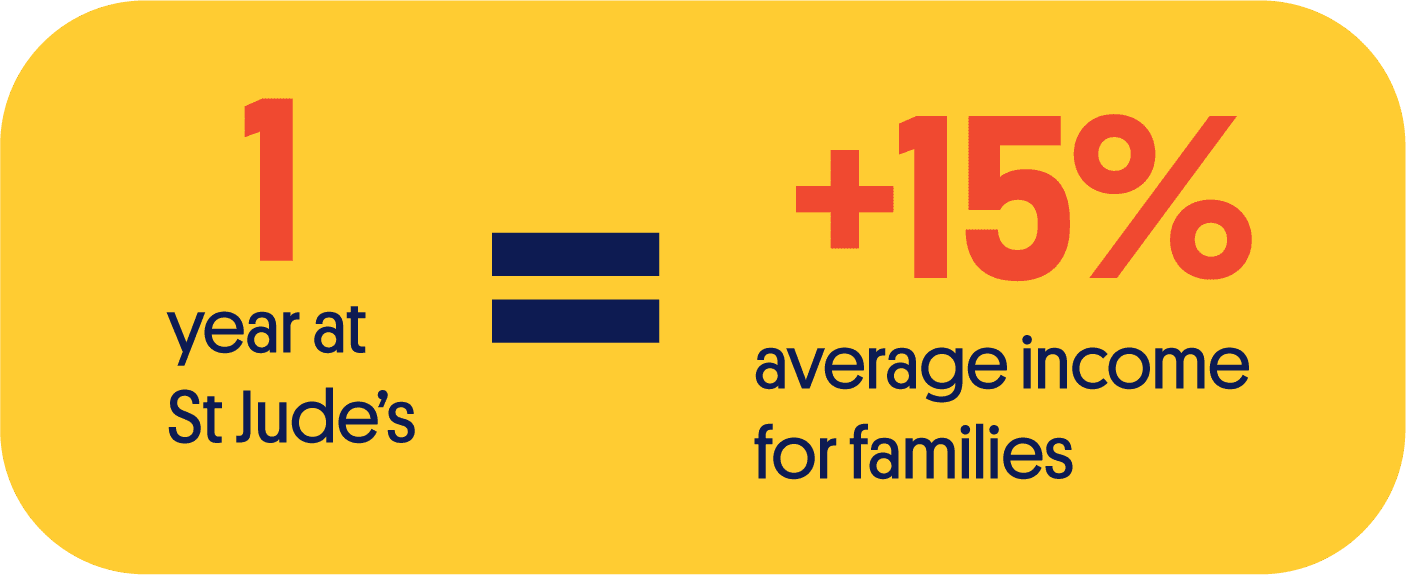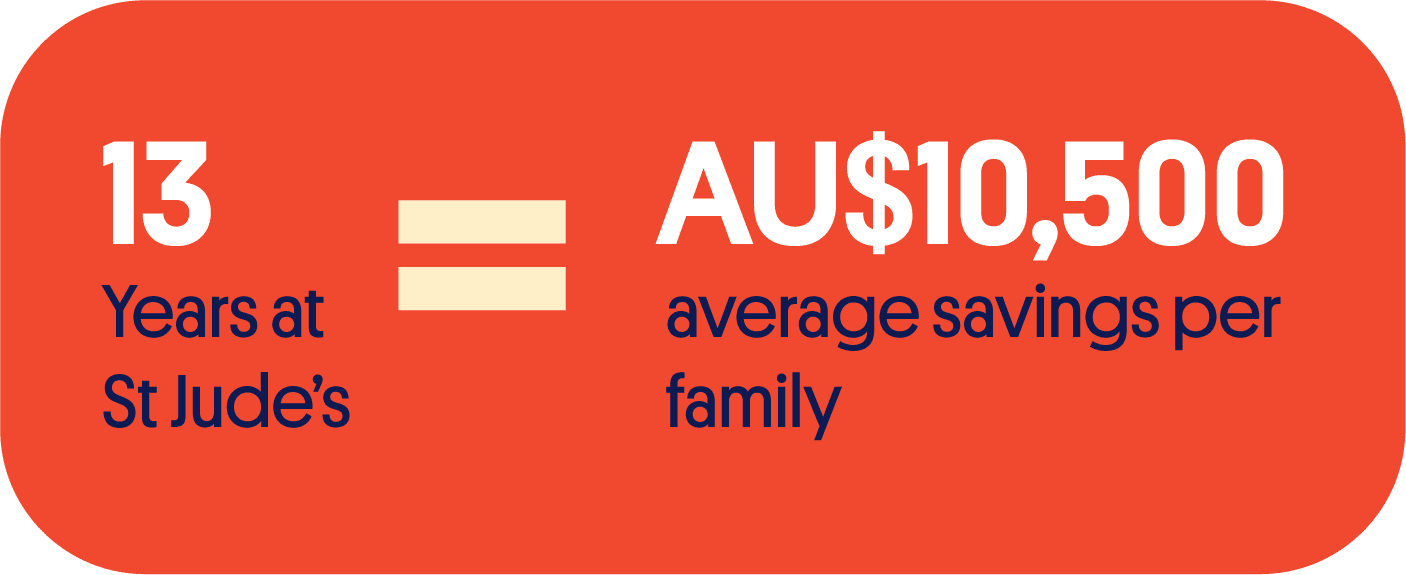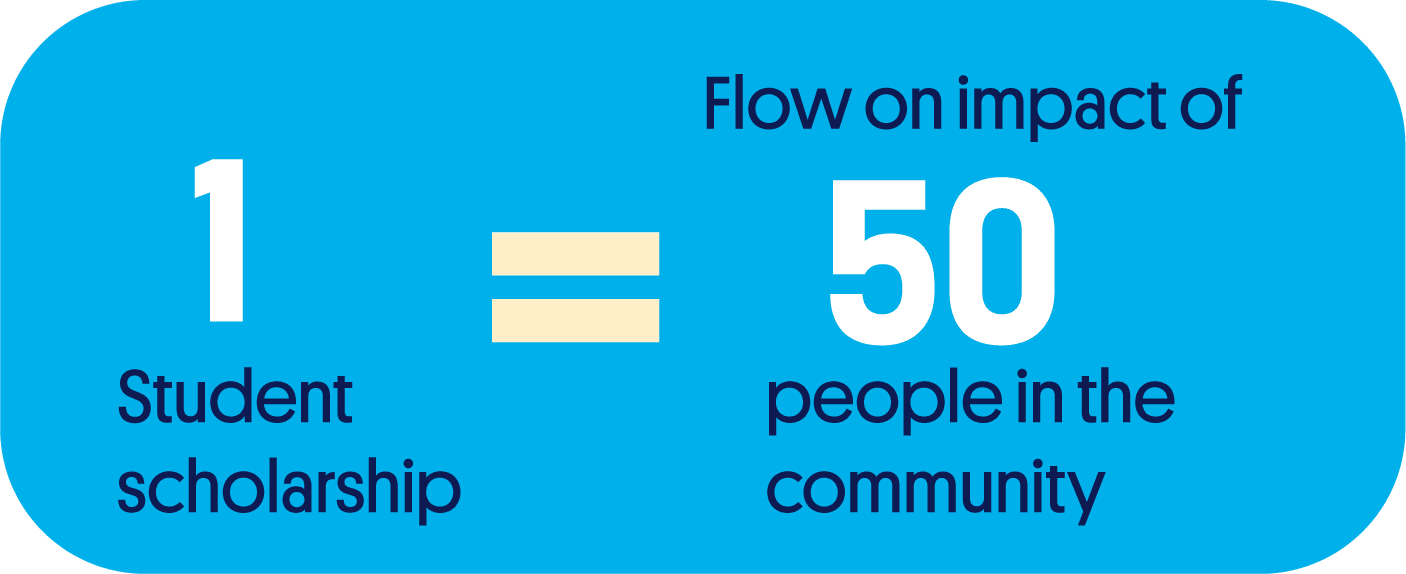
Your donation to St Jude’s goes beyond supporting education – it impacts the whole community, we call this Mawimbi.
The 2023 financial year has ended. However, you can still donate today and create your own Mawimbi.
Our AU$500,000 target fully matched!
Thanks to our wonderful supporters, we have SMASHED our AU$500,000 target.
If you haven’t had a chance to donate and missed the opportunity to match – you can still donate today and create your Mawimbi.
Thank you for creating Mawimbi with us!
We provide 100% free, quality education to 1,800 high achieving children from disadvantaged backgrounds in Tanzania. This includes covering costs of uniforms, school supplies, food, boarding and transport to set children and families up for success. We are 100% funded by charitable donations and sponsorships thanks to kind Australians and our supporters around the world.
Our families on average earn AU$1.20 per day which is the internationally recognised extreme poverty line. Our data shows that parents often have to borrow or sell assets to the tune of AU$8,000 per year to support one child’s education.
That debt or loss of asset is the equivalent to almost one and a half times what they earn per year. Can you see how the cycle starts?
That’s why St Jude’s provides 100% free education.
Mawimbi is a Kiswahili word meaning ‘ripples’, and like ripples, the impact of a St Jude’s scholarship spreads out beyond a child, beyond a family and into a whole community. What we do is education, but the Mawimbi is much more. So join us on this journey as we dive into the ripple effects of St Jude’s.
Over 20 years, our St Jude’s families have collectively saved AU$3.8M by having schooling costs covered by scholarships.
Through The School of St Jude's local suppliers we support an additional 3,000 people each year.

Our alumni are 12x more likely to go to higher education and have established enterprises that employ over 250 people.


Our data shows that for each year a student is at St Jude’s, their families on average improved their income by 15%. That’s not hope for the future. That’s not just hope of better job prospects. That’s real impact, today. Alleviating pressures at the core of the poverty cycle.

